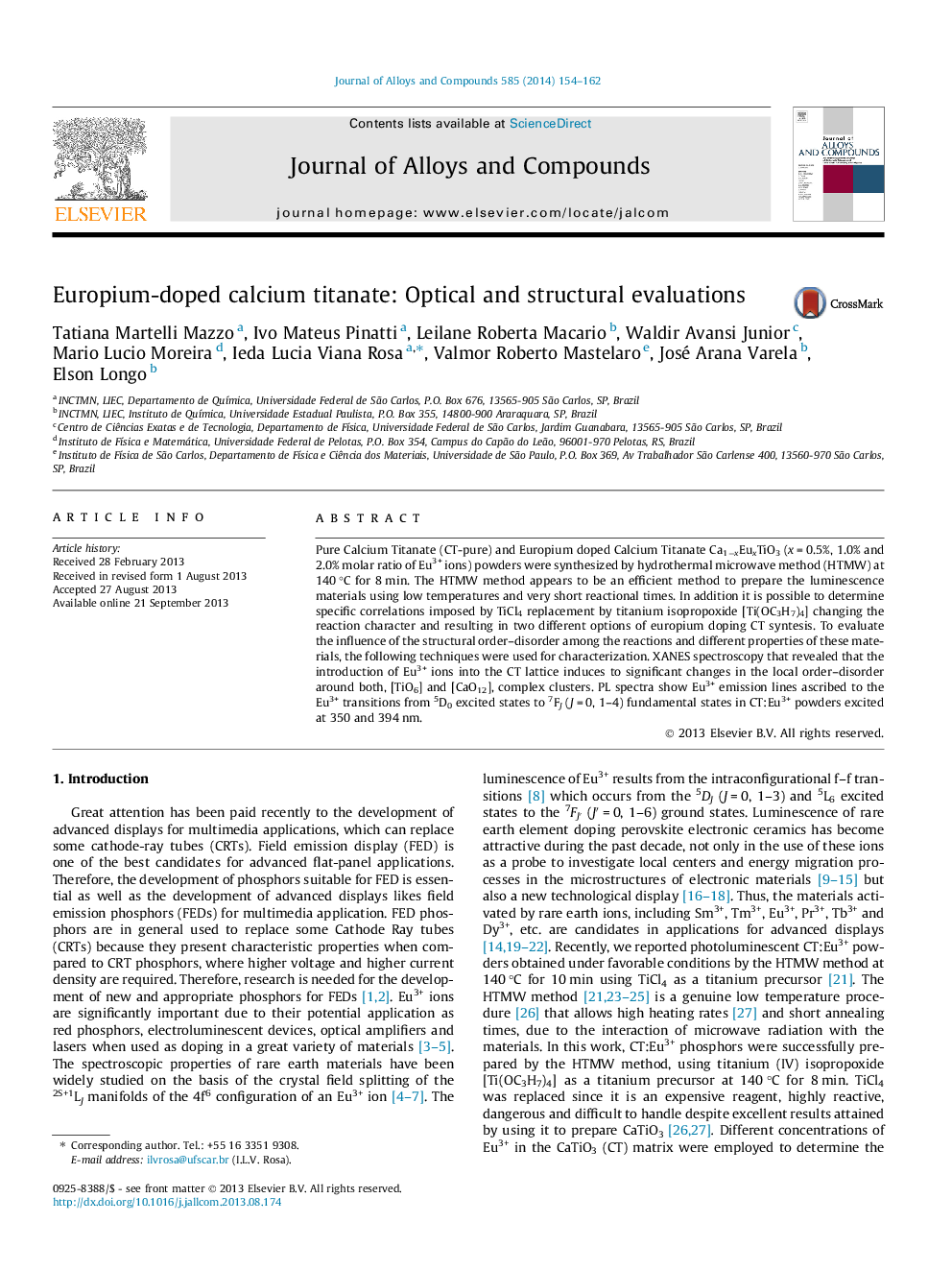| کد مقاله | کد نشریه | سال انتشار | مقاله انگلیسی | نسخه تمام متن |
|---|---|---|---|---|
| 1612959 | 1516308 | 2014 | 9 صفحه PDF | دانلود رایگان |

• CaTiO3:Eu3+ were obtained using low temperatures and very short reactional times.
• The Eu3+ changes the local order–disorder of the [TiO6] and [CaO12] clusters.
• Lifetime decay curves reveal two sites of symmetry of the Eu3+ in the CT matrix.
• CaTiO3:Eu3+ exhibit the strongest luminescent intensity and pure red color.
Pure Calcium Titanate (CT-pure) and Europium doped Calcium Titanate Ca1−xEuxTiO3 (x = 0.5%, 1.0% and 2.0% molar ratio of Eu3+ ions) powders were synthesized by hydrothermal microwave method (HTMW) at 140 °C for 8 min. The HTMW method appears to be an efficient method to prepare the luminescence materials using low temperatures and very short reactional times. In addition it is possible to determine specific correlations imposed by TiCl4 replacement by titanium isopropoxide [Ti(OC3H7)4] changing the reaction character and resulting in two different options of europium doping CT syntesis. To evaluate the influence of the structural order–disorder among the reactions and different properties of these materials, the following techniques were used for characterization. XANES spectroscopy that revealed that the introduction of Eu3+ ions into the CT lattice induces to significant changes in the local order–disorder around both, [TiO6] and [CaO12], complex clusters. PL spectra show Eu3+ emission lines ascribed to the Eu3+ transitions from 5D0 excited states to 7FJ (J = 0, 1–4) fundamental states in CT:Eu3+ powders excited at 350 and 394 nm.
Journal: Journal of Alloys and Compounds - Volume 585, 5 February 2014, Pages 154–162